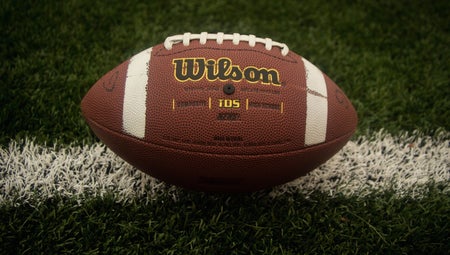Texas A&M Aggies at Kyle Field
College Station, Texas, is home to one of the most storied programs in all of college football, the Texas A&M Aggies. The Aggies play at Kyle Field, which originally opened in 1927 and, after a complete renovation between 2013 and 2015, seats 102,733. They are coached by Jimbo Fisher, who previously led Florida State to a national championship in 2013, and who replaced Kevin Sumlin after the 2017 season. Texas A&M is known far and wide for its "12th Man" tradition, which stems from the 1922 Dixie Classic against Centre College. Spectator and basketball player E. King Gill rode the bench for A&M when coach Dana X. Bible realized he was running out of healthy substitutes, inspiring the Aggies to a 22-14 victory over the undefeated Centre Praying Colonels.
Texas A&M Football History
The Agricultural and Mechanical College of Texas first fielded a varsity football team in 1894. Success came early for the school, with coach Dana X. Bible leading Texas A&M to an undefeated season in 1917, in which the Aggies managed to evade being scored on even once. After Bible served a year in the military during World War I, he returned and repeated this feat in 1919. From 1954 to 1957, the legendary Paul "Bear" Bryant led Texas A&M, leading such notable players and future coaches as John David Crow, Jack Pardee and Gene Stallings. The 1954 team, known collectively as "The Junction Boys," overcame a brutal training camp and the worst season in Bryant's career to become legends in their own right via sheer perseverance.
Through the program's historic associations with the Southwest and Big 12 conferences, and its current affiliation with the Southeastern Conference, Texas A&M has had many bitter foes. Its fiercest, with the University of Texas, effectively ended upon the Aggies' switch to the SEC in 2012, but tense rivalries with LSU, Arkansas and South Carolina remain. The Aggies have had two Heisman Trophy winners: John David Crow in 1957, and Johnny Manziel in 2012. They've won 17 SWC championships plus the 1998 Big 12 Conference championship, to go along with three national titles, in 1919, 1927 and 1939.
